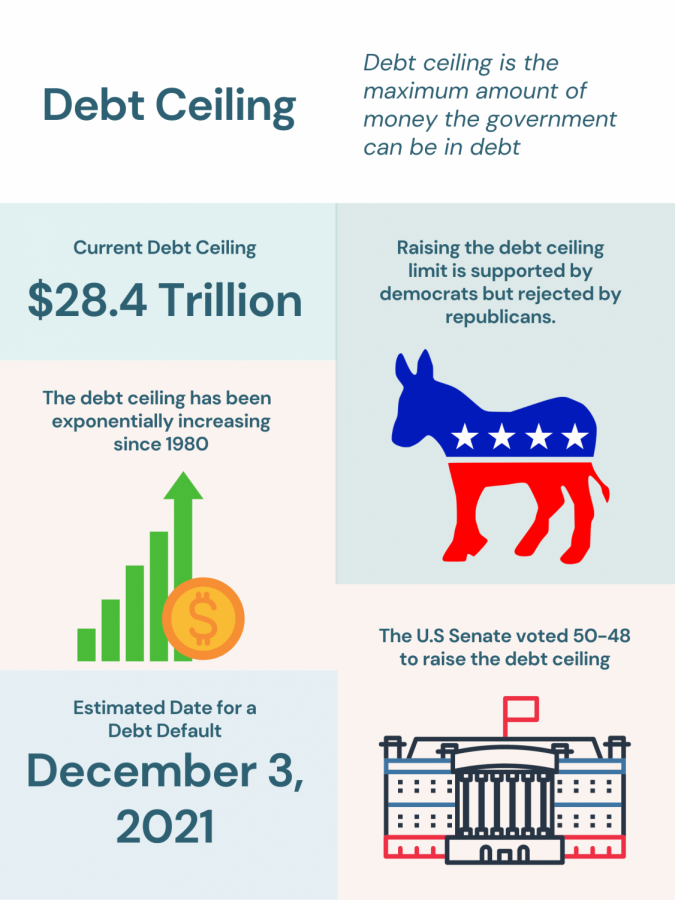US Government attempts to raise the debt ceiling
The debt ceiling has been increasing over the past 40 years, and is an ongoing argument in the Senate.
October 28, 2021
On Tuesday, October 12th, the U.S. House of Representatives gave approval to temporarily raise the debt ceiling limit to $28.9 trillion.
The government usually pays for matters through taxes collected by the people. When they overspend, the government borrows money to pay for items or people, otherwise known as debt.
“Over the last 20 years, the government has spent more money than they have taken in, increasing their debt year over year,” said Amador economics teacher Robert Palmer.
The debt ceiling is the maximum amount of money the government can be in debt. Raising the debt ceiling amount allows for more money to be spent, but the time to pay it back is in December. If the government cannot pay back the debt collected, the U.S. will go into a debt default.
“If the U.S. government ends up going into a debt default, what that’s going to do is essentially cut government spending. Biden’s new infrastructure tax and all the new bills that are being passed right now will be stopped because we won’t have enough money for that,” said Gordon Tam (‘22).
The government has never gone into a debt default before but if it did, it’s predicted that markets would plunge and interest rates would rise.
“As a citizen, we might not be able to access a lot of welfare programs: social security, medicare, our veterans won’t be able to receive paychecks, and our stimulus checks will most likely get cut,” said Tam.
Raising the debt ceiling has been an ongoing argument between Democrats and Republicans in the Senate.
“Republicans insist Democrats should take sole responsibility for raising the debt limit because their party wants to spend trillions of dollars to expand social programs and tackle climate change,” said reporters Cornwell and Cowan in their Reuters article.
Though the House of Representatives approved a temporary raise, doubts are still high on whether it was the best decision for the country and whether or not the government will be able to pay the amount back on time.





